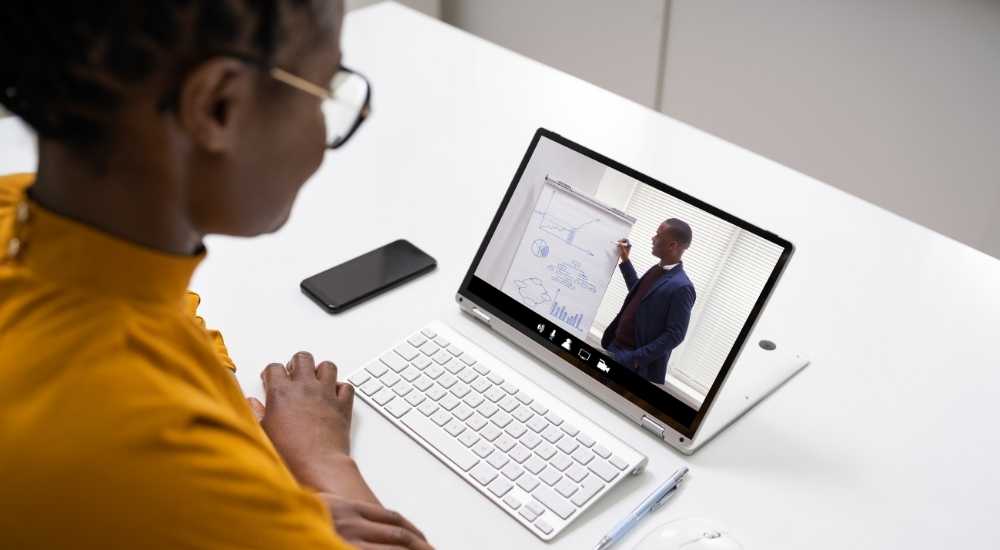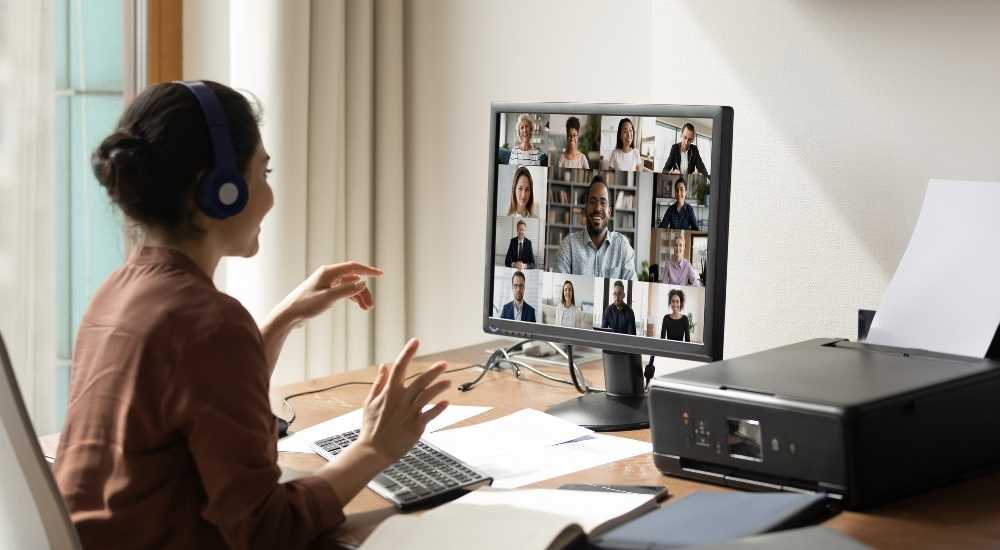Virtual learning is here to stay
Even before the global pandemic, many businesses had shifted much of their classroom based learning to virtual delivery, enabling learners to gain the benefits of instructor led training without the expense, disruption to workflow and time impact of traveling associated with classroom learning. This trend accelerated dramatically during the pandemic. Initially, many businesses struggled to make the transition, but most caught up and now it seems certain that Virtual Learning will be a sustained aspect of the workplace learning experience as we return to a hybrid model of working and learning. The flexibility, agility, ease of use, mobility, and integration of digital technologies in the workplace has become the standard that users will accept.
The benefits of of Virtual Learning
LXPs integrate with existing internal and external ‘Trusted Sources’ of knowledge and learning, corporate HR s
Virtual classroom based learning, sometimes described as same-time, different place, is an inherently more flexible delivery format when compared with conventional classroom experience, sometimes described as same-time, same-place. When the constraint of physical location is removed, the options for delivery available to the learner and the instructor increase.
For example: A former classroom based course can be structured around the working environment by splitting into chunks when delivered virtually. Furthermore it can be more effectively combined with self-paced learning, and provides additional ways to interact with fellow learners and instructors that can enable and reinforce learning (eg., polls, quizzes, surveys, break out groups, whiteboards).
Virtual Learning also allows monolithic courses to be split into component parts that can be delivered in isolation; for example an experienced audience can attend a delta update on what’s new without re-attending an entire course; elements of a content that repeat across multiple courses can be delivered once to a larger audience without the need for all learners to follow the same content on every subsequent course.
Virtual Learning can also be recorded for playback, something which is exceptionally difficult to do well in a physical classroom without careful planning, clip microphones, multiple cameras, professional lighting, an audio and video mixer to bring presentation materials, instructor and audio together, camera operators, media editing specialists and so on. Virtual meeting tools eliminate all this complexity.
Another benefit of Virtual Learning is the elimination of the costs associated with travel and lodging, which also require administrative procedures for expense approval, usually a responsibility that falls to the employee’s line manager. There’s also no need for classroom setup, clean down, provisioning for meals, hotel and travel booking, venue reception, etc. The cost take out achieved with Virtual Learning scales with every virtual classroom event delivered.

The time is right for Virtual Learning and LXPs to combine
The following are some of the most comThe accelerated adoption of virtual meeting tools in the workplace that has occurred since March of 2019, combined with shifts in working patterns to home-based or hybrid working have underscored the utility of virtual meeting tools as a delivery platform for learning. It has also exposed millions of users to the benefits of social and collaborative computing in a wider context; through the adoption of document sharing tools, chat platforms and mobile technologies. These benefits can be transferred to virtual learning, especially when delivered through a Learning Experience Platform (LXP). This is an approach that many businesses have taken as they have migrated from predominantly classroom to virtual classroom based learning delivery augmented by self-paced learning.
What does an LXP add to a virtual meeting tool?
Virtual meeting tools (MS Teams, Google Hangout, Zoom, etc) provide the means to host and deliver instructor-led virtual learning, but they are not designed to manage the learners’ end-to-end experience. For example virtual meeting tools do not provide a means to notify learners of forthcoming events, or create an easy to navigate catalog of learning events that can be recommended by AI, shared by colleagues or assigned by managers and L&D programme leaders. Neither can virtual meeting tools build re-usable and flexible learning paths that combine pre-and-post event activities, track engagement and completion, or provide access to rich analytics and reporting for managers and L&D administrators. For these reasons virtual learning is best accessed through a Learner Experience Platform (LXP) which performs these additional functions when used in combination with a virtual meeting tool to enable Virtual Classroom based learning.
How does an LXP treat a Virtual Learning event?
An LIn the context of a Learner Experience Platform, a Virtual Classroom event is one of several types of learning activity that can be recommended to a learner with the assistance of AI based on their personal learning goals. Other learning activities may include, but are not limited to: video, audio, articles, SCORM/AICC content, assessments, polls, surveys and so on. An LXP can structure any number and variety of learning activities into re-usable Pathways that may include Virtual Classroom events as part of the overall learning experience. Moreover LXPs are agnostic of the underlying virtual meeting platform, rather they work with all the leading virtual meeting solutions available on the market today, and can support multiple platforms for the needs of different business units. As a result, businesses can easily change their chosen virtual meeting platform without impacting the learning experience, the only administrative change that would be needed in an LXP is to update the URL link and passcode for whichever virtual meeting tool is used for a particular Virtual Learning event.
Reusability and flexibility in the usage of virtual learning
LXPs also provide an immense degree of flexibility in the way that virtual learning activities are used. The same Virtual Classroom event may be re-used across multiple learning Pathways, for example: An onboarding program may have a common ‘Welcome to the business’ virtual learning event, followed by separate ‘Meet your team’ virtual events for onboarding into various lines of business. The ‘Welcome to the business’ virtual learning event can be scheduled on a quarterly cycle by HR, whereas ‘Meet your team’ virtual events may be scheduled as required by line of business, or even line manager.
An LXP can support multiple iterations of a virtual learning activity, so that Virtual Classrooms sessions can be scheduled in parallel but at different times of the day (eg., to support learners connecting from multiple time-zones) or in sequence where an event needs to repeat periodically. Specific virtual learning events can then be made visible to all (or selected) learners so they have the widest choice of dates and times. The LXP’s close integration with virtual meeting tools automates the process of issuing a unique URL and passcode for each Virtual Classroom event.
LXPs also excel at delivering a mobile ready experience, one in which the learner can access Virtual Learning on the go, either live or recorded. All of the benefits of Virtual Learning that are available to desktop and laptop users can be delivered through a mobile device.

Empowering Coaches, Mentors and SMEs
LXPs enable coaches, mentors and subject matter experts with the means to plan, schedule, share, promote or assign Virtual Learning to other learners or Groups of learners – something that cannot be done within virtual meeting tools. They also provide functions that enable user-generated content, including integration with virtual meeting tools that can be enabled through Role Based Access Control (ie. made available only to those users who need access).
This delegation of authority is a key capability of an LXP as it allows for a swifter and more agile deployment of virtual learning at line of business level, without the need for a centrally managed program that may be subject to budget approval and competing priorities for learning development and instructor resourcing.
Asynchronous and Synchronous learning combined
Employees in marketing, sales, and customer relations need to frequently and quickly update their knowledge of An LXP can also integrate learner activities into Pathways that involve submission of materials produced by learners (eg., a short sales presentation or a product demonstration video) in advance of a virtual learning event that is then used in the live virtual classroom as a team activity where learners might play multiple roles as sales rep, pre-sales consultant, client and observer. In this way, learners can plan, prepare and submit their presentation asynchronously as individuals; while delivery, observation and feedback is given synchronously in cohorts. Since all virtual meeting tools provide recording capabilities the learner presentations may be recorded and the best among them shared as asynchronous learning activities in their own right, to highlight good practice to other learners, perhaps appended to the end of an LXP curated learning Pathway – creating a virtuous learning circle in which other learners can like, rate and share the best examples of work submitted by their peers.
Conclusion
Virtual Learning is here to stay, and it is a complementary form of learning activity that integrates particularly well with a Learner Experience Platform (LXP). Combining Virtual Learning with a Learner Experience Platform results in a superior experience for the learner, for the manager, the instructor / coach / mentor and the L&D administrator.
A virtual meeting platform and an LXP can work in harmony to support the demand for a consumer-grade, easy of access, personalized experience by the learner; enabling a culture of self-directed learning that reduces the burden of approvals for travel and lodging expenditure on line managers; and creates learning programs that are flexible, reusable, easy to schedule and produce detailed analytics and reporting for L&D leaders.

About EdCast
EdCast offers an industry-leading LXP designed to support learners and businesses in preparing for the future of work. The EdCast LXP is a consumer-grade digital learner experience platform that scales to millions of concurrent users, enables a personalized experience, integrates with any number and variety of Trusted Sources of learning, and works on any device. The EdCast LXP enables upskilling and reskilling at scale supports integration with Learning Management Systems (LMS), HR Information Systems (HRIS), Talent Management Systems (TMS), and third-party content catalogs.
Need help in transforming Learning & Development in your organization? We will be happy to help. Talk to us.



